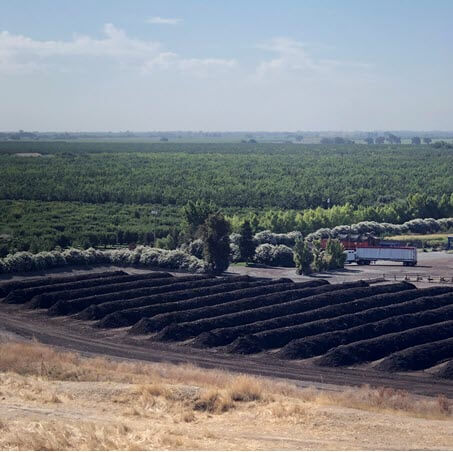
Taking the Lead in Composting
Republic Services is known as an industry leader in recycling and waste disposal. Add composting to that list. With 11 compost facilities, we’re helping to divert yard and food waste away from landfills in California, Oregon and three other states, and processing it into 1.7 billion pounds of organic waste.Byline: BTB Editor
May 5, 2020 / Time to read: 5 minBy Chris Seney
Republic Services is known as an industry leader in recycling and waste disposal. Add composting to that list. With 11 compost facilities in five states, we’re helping to divert yard and food waste away from landfills and processing it into 1.7 billion pounds of organic waste annually.
This week is
According to the EPA, yard and food waste make up about 30 percent of the municipal solid waste that’s sent to landfills. However, diverting this material to compost facilities can create a nutrient rich soil amendment known as compost.
Our compost facilities use a natural biological process to transform yard and food waste into compost. This compost is then marketed and sold to landscapers, golf courses and farmers, and to customers by brands you’d recognize at your local home-improvement store.
Republic Services has 11 compost facilities across five states, with a total of 85 employees, and our new facility is scheduled to open this quarter in Ohio. Half of our composting facilities are technologically advanced, using mechanical aeration to speed up the biological process and reduce odors. The facility at Otay Landfill in Chula Vista, Calif., is completely off the grid, utilizing Gore technology with solar-powered fans that aerate the organic material. In the future there will be a continued trend toward technologically advanced composting.
The Otay facility is one of six in California, where there is a greater demand due to legislation mandating the diversion of organic waste from landfills. California disposes of approximately 20 million tons of organics each year, and current legislation requires that 75 percent of the organics be diverted from the landfill by 2025. In coming years, similar requirements are expected in more markets – meaning even more food and yard waste will need to be processed, creating additional business opportunities.
Organics diversion is being debated across the country, and legislation is driving it out of landfills. The organics industry is an emerging industry with an enormous amount of opportunity.
Learn more about our
Chris Seney is Director of Organics Operations for Republic Services and a board member of the Association of Compost Producers.
